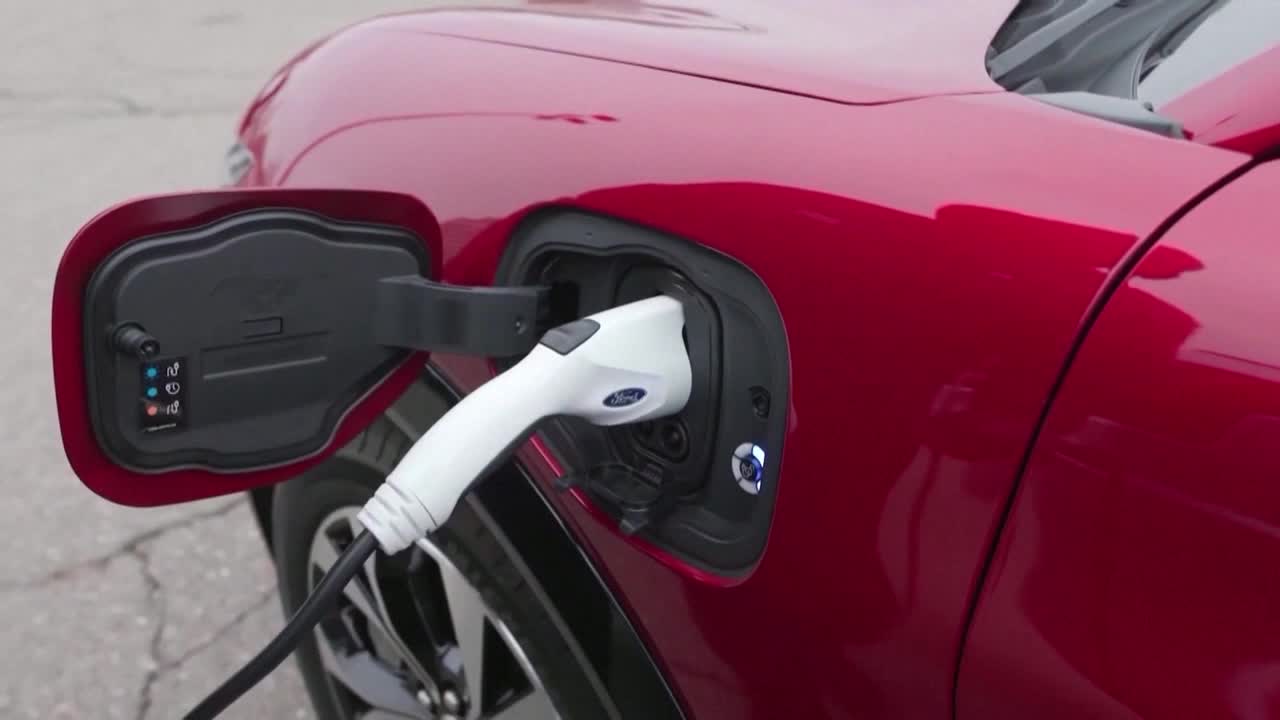Xcel Energy proposes massive EV charging network; customers to cover cost
Xcel Energy’s proposed plan to build more than 700 electric vehicle charging stations would make the state’s largest utility company the owner of the largest utility-owned charging network in the U.S.
Xcel claims it’s leading the way to make Minnesota an electric vehicle leader. Some private retailers, including Lonnie Mcquirter, who owns a fast-charging station at his Minneapolis gas station, say the plan will send other interested businesses packing. Meanwhile, Xcel’s customers fear a financial pinch.
Mcquirter has owned and operated 36 Lyn Refuel Station in Minneapolis for going on 18 years. An electric vehicle charger has been on the lot since 2014.
“Started to see more EVs on the road at that time,” Mcquirter said.
The state’s largest public utility company is hoping to jump into the market in a massive way, proposing a plan to the Minnesota Public Utilities Commission in August to build, own and operate approximately 730 high-speed charging stations by 2026.

FILE - This file photo shows an electric vehicle plugged in and charging. (KSTP/file)
Ryan McKinnon with Charge Ahead Partnership, a coalition for the expansion of EV charging through private investment, says Xcel isn’t the first utility company to propose the plan, but the scale of the plan is unprecedented.
“Over the last year, we’ve been tracking these types of requests by public utilities all over the country, and Xcel’s is by far the largest that we’ve seen,” he said.
Mckinnon called it a proposed monopoly that will drive out competition.
The plan is filling a big gap, according to Nadia El Mallakh, Xcel Energy’s vice president of clean transportation and strategic partnerships. Xcel Energy’s proposal claims the charging network would cover about 45% of the forecasted need by 2026.
“When we look at 2030, we’re killing only about 20% of the gap. So there’s plenty of room,” El Mallakh said in an interview with 5 EYEWITNESS NEWS on Monday.
“No private business would risk their own money and invest their own money to offer EV charging when Xcel can do it using ratepayer funds,” McKinnon rebutted. “There’s this 500-pound gorilla, and that’s Xcel.”
When asked if charging demand would be fulfilled in Minnesota in the coming years if building it was left up to the free market without public utility company involvement, McKinnon said, “We have gas stations and we have fuel retailers and convenience stores. All sorts of folks aren’t coalition who want to get into this market.”
Mcquirter said he’s exploring building up his operation but worries about doing so alongside Xcel.
“Given the monopoly, it generally doesn’t lead to the best outcomes for those smaller guys,” he said.
Xcel customers fear a hit to their utility bills, too. The charging network will cost roughly $170 million to build, the proposal reads. To operate them, Xcel says it will need another $27 million from ratepayers between now and 2026.
The plan has been met by large-scale opposition, including in one of two public hearings this week, where 190 people logged on to say their piece.
“I think as a private company, they should finance it with private funds. The same way that I’ve had the self-financed the charger here,” Mcquirter said.
Dozens of comments previously submitted by angry energy customers take issue with covering the cost, some pointing to their utility company’s annual billions in revenue.
“What this does is it means higher power bills for everybody in Minnesota, regardless of whether they own an EV or not,” McKinnon said.
Asked for a response to its customers picking up higher rates to fund the project, El Mallakh said, “Yeah, so again, this is gonna deliver net benefit. It’s repaid for everybody who’s getting to breathe cleaner air, right? For every EV that’s coming on and reducing emissions.”
Xcel’s proposal would include a lower price at charging stations for its own customers.
The Minnesota Public Utilities Commission is taking comments until April 5. A spokesperson said Monday the proposal will be taken up for review later this year.